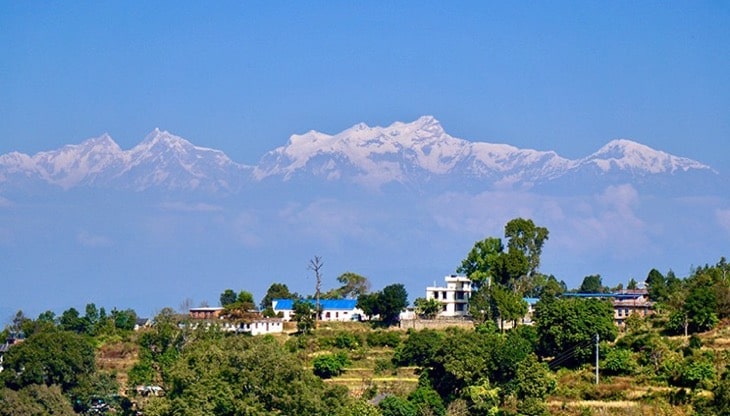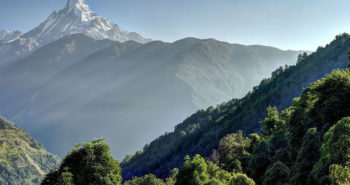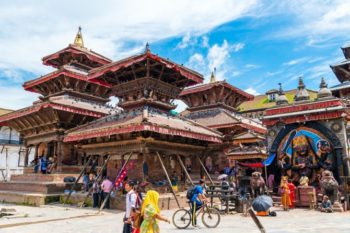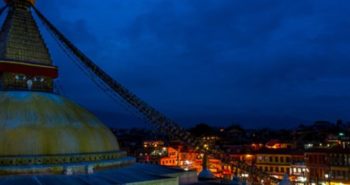Things Every Expat Should Know Before Coming to Nepal
Talking to expats from around the globe who live in different parts of the world, it seems clear that the first six months in a new country are the hardest. How prepared you are when you arrive also depends on whether you are a first time expat or a seasoned expat; coming alone or with a family; coming to a pre-arranged job, or hoping to find something when you arrive in your new country.
Most of the expats in Nepal live in Kathmandu but there are others living in Pokhara and other cities, depending on their work etc. Most expats are here for 2-4 years on assignment although there are many who have been here for 20 or 30 plus years. Some people come with the hope they will find work or come as volunteers (VOS, Peace Corp etc.). So not everything found on these pages will apply to every ‘expat’. But we hope you will find these pages useful, particularly if have not yet arrived in the country.
Going to another country can be daunting. In this Expat Guide we have tried to give you some information and tips about how to settle into Kathmandu life. Let’s start with this quick check list:-
Getting There
Check your transport details. Do you require a return flight out of the country in order to meet visa requirements? (not for Nepal). Are you shipping goods or planning to buy furniture etc when you get there? Are your electrical appliances going to work? Check local voltage.
Arriving
Will someone meet you at the airport? Do you have accommodation arranged for the first couple of days? Do you have local currency? (Unlikely for Nepal) Use the ATM in the airport. Bring cash dollars.
Communications
Can you get a local SIM card at the airport? (yes for Nepal). Unlock your phone if necessary before you arrive. Find out about internet services as soon as possible.
Finance
You probably know how you are going to be paid but double check. Research local banks but also keep your bank account at home operational. Internet banking!
Connections
How will you connect with other expats, meet local residents, and make friends? Other expats are invaluable sources of information and help. Look for social meet-up groups or language exchanges and locate yoga classes, gyms, libraries, book clubs, or other places you can meet both locals and fellow expats.
Language
Look at taking classes. Although it’s easy to get by in English in Nepal, it will be easier if you can speak basic Nepali.
Mindset
Enjoy the experience!! Listen, be patient, be trusting, smile and have fun!
Safety
Firstly, it is a relatively safe country. It is fine to walk around in the evening (even in those unlit streets). However, public transport (particularly inter-city) is not as safe as in countries with well-maintained roads and vehicles. When taking domestic flights, consideration has to be given to the landscape and weather. The UN recommends using Buddha Airlines, as their planes are better maintained and their safety record is higher. However, they do not fly to the mountainous areas.
Crossing roads is a bit of a hazard until you get the hang of it. Basically, the pedestrian the least important thing on the road. Don’t expect many vehicles to stop at zebra crossings for you. How the locals do it is walking out boldly (!), hold out your hand in a stop sign, and cross, making sure you look both ways for oncoming speeding motorbikes. If possible, join others waiting to cross the road.
It is good to be aware that there are political fractions that ever so often become more active and have been known to become violent. Foreigners are not normally targets but one should avoid large political gatherings and take information from UN/ embassy radio broadcasts when there are strikes and unrest. Strikes, or bandha as they are known, are frequent. Pay attention to news and do not take vehicles out on the road. Walking around is fine although most shops and businesses will be closed.
Trekking should never be undertaken alone. Even a twisted ankle can put you into dire straits if you are alone. And there is the possibility of landslides, flash floods, and other naturally occurring dangers.
Unfortunately, there is also the danger from robbers, or worse. While this is rare, it is best not to put yourself into this position. If you don’t want some chatty English speaking, know-it-all guide (yes we ALL know those types!), then hire a local porter who will not only carry your bag, go for help if necessary, and have a local knowledge of the land, but in general will have less language skills and therefore be less intrusive. On the other hand, knowledgeable and talkative trekking guides can add depth to your trip.
The earthquakes of 2015 killed over 9,000 people and left many more homeless. What most of us didn’t realise is that an earthquake has many aftershocks and so far, over the past 15 months (at the time of writing) there have been around 450 aftershocks over the magnitude of 4 on the Richter scale. Having your go-bag and earthquake kit prepared is just common sense. If your office does not provide you with information on this, you can very easily get information from the Internet or other expats.
Weather in Nepal

Kathmandu weather is pretty good. Not too hot in the summer, not too cold in the winter and not too wet in the monsoon. Well that’s on paper anyway!
The maximum temperature in the summer is around 34 degrees, with averages around 30. The increase in recent years in the buildings, and vehicles and the fact this is a valley where pollution (and heat) gets trapped, means it can feel hotter than it is.
Monsoon is humid although the rain can freshen the air and everything looks green. Unfortunately, the storm drains cannot handle the monsoon rains and very often whole streets will be flooded, making it impossible for traffic to pass. Expect delays! Winter can be a lovely time in the Kathmandu Valley with temperatures being in the low 20s in December, going down to around 10 or 12 in January. The minimum temperature never really falls below 1 or 2 degrees Celsius. It does not snow in Kathmandu.
But, and it’s a big BUT, in general buildings and houses do not have heating of any kind. Bigger hotels and offices (such as the UN) have central heating but smaller offices, government offices, and accommodation do not have this luxury. And remember, with load shedding and frequent fuel shortages, even if you have it you might not be able to use it.
So while outside may be a lovely sunny 18 degrees you might be shivering inside as the concrete walls bring the temperature down to warm jacket and gloves temperature. In the evenings as the temperature outside falls to 2 or 3 degrees, you can imagine what it is like inside!
Those of us from Scotland or Canada, to name just two chilly countries, and who are old enough to remember growing up or who had grandparents without central heating, will know what I’m talking about! For those of us who work from home, a hat and fingerless gloves is a must, with a hot water bottle for those really cold days!
Thankfully, gas heaters work very well to heat a small room, such as a bedroom. Electric heaters are less efficient and expensive to run. Gas heaters are widely available to buy and use the same gas cylinders that are used for cooking in the kitchen.
Be aware in the winter there maybe be a shortage of gas, so plan ahead.


